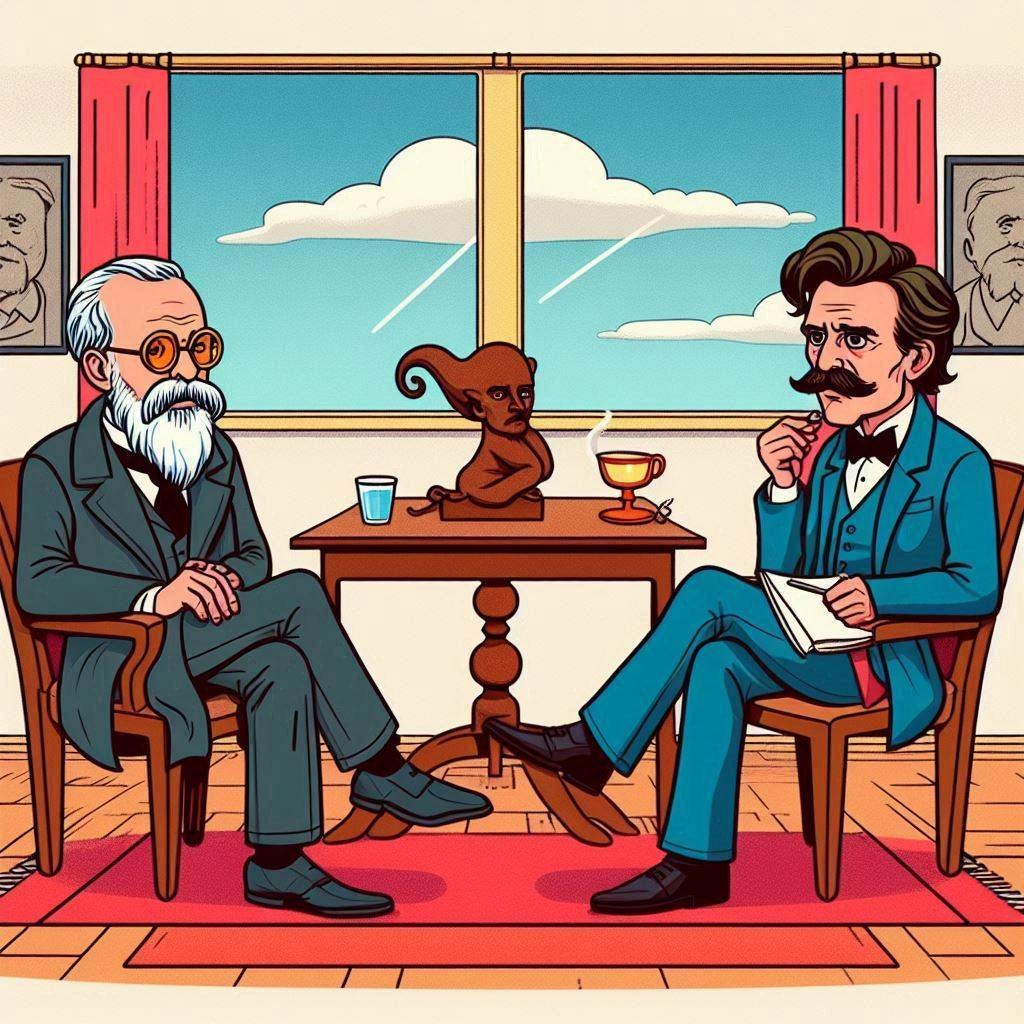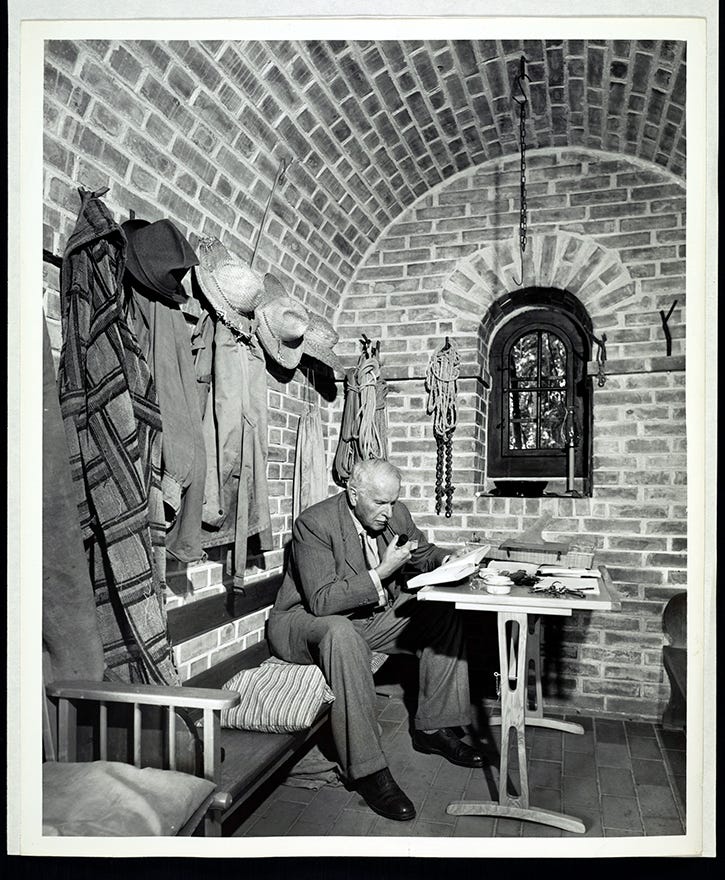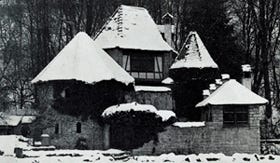Carl Jung: "Without consciousness, you will not change and will remain the same forever"
In his strange and beautiful house by Lake Zurich (Switzerland), the great psychoanalyst Carl Jung held a seminar in 1934 to study the enigmatic book Thus Spoke Zarathustra by the Nietzsche
Context
Through the figure of Zarathustra, Nietzsche presents the transformation of the human being into a higher state: the Übermensch or his superman. Jung takes these concepts and breaks them down, showing how self-knowledge, the breaking of illusions, and the acceptance of the shadow are fundamental for true personal change.
The psychoanalyst addresses fascinating topics such as the death of the old self, the need to renounce past ideals, and how true virtue does not lie in external norms, but in the capacity to transform oneself internally. Additionally, he delves into the process of individuation, showing that only when we confront our own shadows can we truly evolve.
Development
Nietzsche says: "I love him who lives to know and who wants to know so that one day the Übermensch may live. And in this way, he desires his own death."
Carl Jung explains: Here again is the famous Untergang, the sunset of all his ideals about himself, an extraordinary illusion, and an increase in knowledge. Without illusion, we never acquire knowledge, and without knowledge, we never acquire new consciousness, and without consciousness, we never change: by living unconsciously, we remain forever the same.
Explanation
Jung points out that Untergang is "the sunset of all his ideals about himself." This means that, in the process of self-knowledge and evolution, a person must let go of their previous conceptions of who they are. The sunset symbolizes the end of the illusion of the old self.
Although illusions are, in theory, an obstacle to knowledge, they are actually necessary in order to learn. Illusions allow us to structure the world and ourselves in a way that, although not entirely true, provides a foundation upon which we can develop. As these illusions break and confront reality, we gain deeper knowledge.
Nietzsche says: "I love him who works and discovers that he is building the house for the Übermensch..."
Carl Jung explains: This is the new man who knows, whose consciousness is extremely individual—if he can ever swallow the fact of himself.
Nietzsche says: "... and who prepares for him the earth, the animals, and the plants: for in this way, he desires his own death."
Carl Jung explains: He descends into concrete reality. He becomes human again and ceases to identify with his ideals. In other words, he creates a new ideal that aligns with the real man, with man as he exists in the body.
Explanation
Jung points out that this builder of the Übermensch is "the new man who knows," meaning someone who has gained a deeper awareness of himself. But this consciousness is neither collective nor socially determined; it is extremely individual.
This statement is crucial in Jung's thought. In his theory of individuation, the process of personal development involves distancing oneself from socially imposed norms and taking responsibility for one's own existence. However, this awareness is not easy to achieve:
The new man must accept his own reality without evasions or illusions. Knowing who he truly is, without embellishments or self-deception, is a tremendous challenge. In Jungian terms, this could be equivalent to integrating the shadow, acknowledging the hidden and repressed aspects of the psyche.
For the Übermensch to live, the old man must die. This does not mean literal death but a profound transformation of the self. The individual must shed their previous identity and false illusions to be reborn in a new form.
Jung interprets this as an act of incarnation in reality. Instead of remaining at an abstract level of lofty ideals, the new man returns to the concrete. He stops seeing himself as separate from the world and accepts his earthly existence with all its implications.
The danger for many idealists is that they become lost in their ideas and disconnect from the real world. Nietzsche and Jung agree that true transformation does not occur on an abstract plane but through interaction with life itself.
Nietzsche says: "I love him who loves his virtue, for his virtue is a will to die and an arrow of longing."
Carl Jung explains: Once again, the virtue of continuing, the closeness to the earth, to man as he is. The arrow of longing is change, going beyond, because by accepting ourselves as we are, we long to be different and thus move the whole world forward. We do not want to be ourselves because we cannot bear ourselves. That is why we never progress. We remain as we are because we do not accept the only thing that could be a sufficient driving force to bring it to light. Only when we accept what is repugnant to us do we have the real will to change—not before.
Explanation
Nietzsche and Jung agree that true virtue is not blind obedience to external norms but a willingness to transform.
Longing is not just a yearning for the past but an arrow pointing toward the future.
Real change only occurs when we accept our reality without self-deception.
Our repulsion toward certain aspects of ourselves is what prevents us from evolving.
Transformation happens when we stop running from our shadow and integrate it.
Nietzsche says: "I love him who does not keep for himself even a single drop of spirit, but whose spirit wants to be entirely his virtue: thus he crosses the bridge as a spirit."
Carl Jung explains: This means he loves the one who has the intuition of that virtue, who at least intuitively grasps the meaning of that virtue, and thus crosses the bridge in spirit.
Explanation
Nietzsche and Jung are describing a state of total surrender to the process of change. It is not about accumulating intellectual knowledge about virtue but about embodying it.
The act of crossing the bridge is symbolic of personal evolution. To do so, it is necessary to:
Not hold on to the old self but fully commit to the process of transformation.
Intuit the meaning of change, even if it has not yet been fully realized.
Understand that virtue is not an external norm but an internal principle that drives us to evolve.
The final message is clear: only those who throw themselves wholeheartedly into the process of transformation can truly cross to the other side.
Source: Carl Gustav Jung - "Nietzsche’s Zarathustra" - Volume I - Session V, June 6, 1934.







